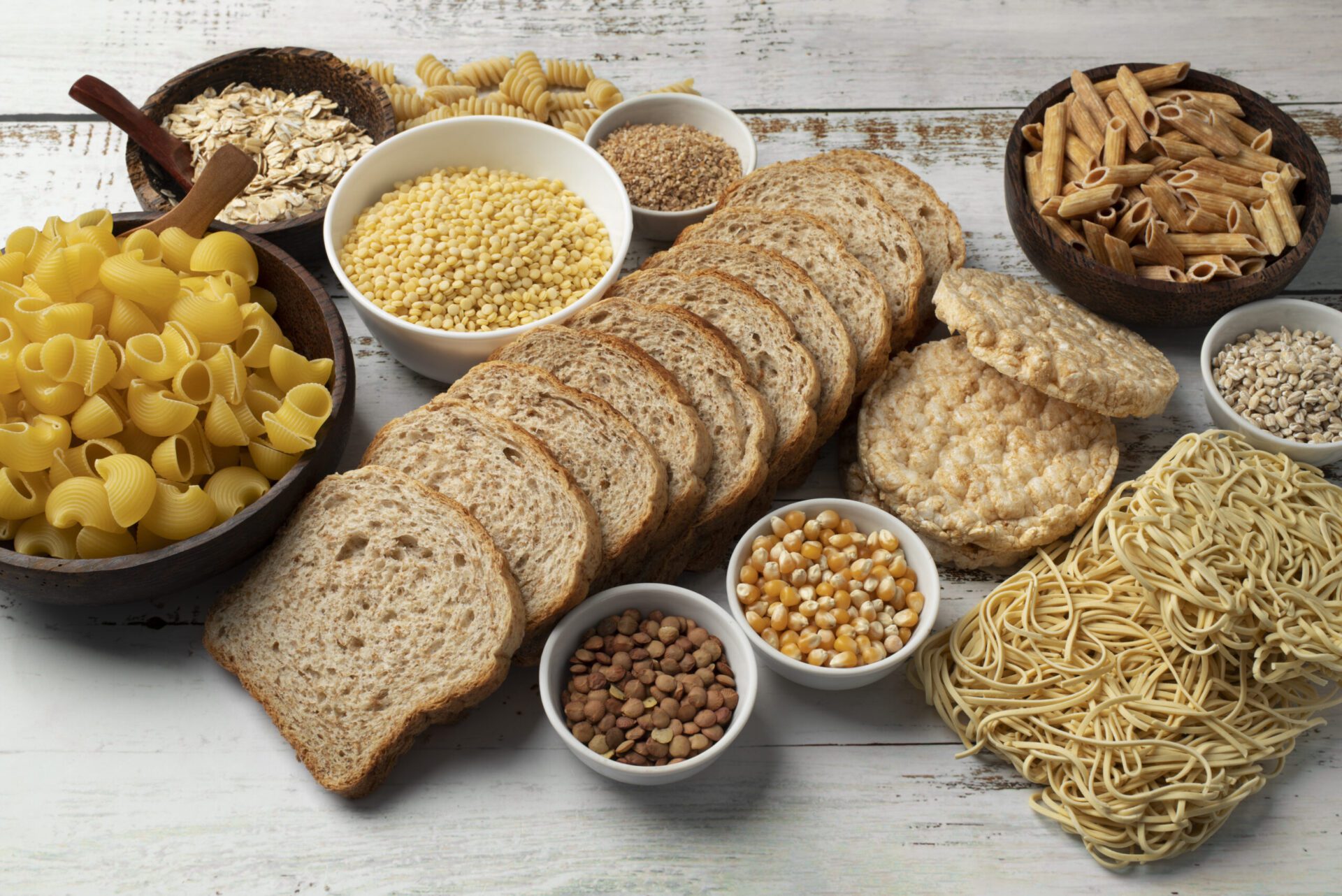Carbohydrates are one of the primary macronutrients that our bodies need to function effectively. They serve as a significant source of energy and play vital roles in maintaining overall health. In this comprehensive guide, we’ll explore what carbohydrates are, their types, their importance, how much you need, and the best sources to include in your diet.

What Are Carbohydrates?
Carbohydrates, commonly referred to as carbs, are organic compounds consisting of carbon, hydrogen, and oxygen. They are found in a wide range of foods and are a crucial part of a balanced diet. Carbohydrates can be categorized into three main types: sugars, starches, and fiber.
- Sugars: Simple carbohydrates that include glucose, fructose, and sucrose. They are found in fruits, vegetables, milk, and sweetened foods.
- Starches: Complex carbohydrates composed of many sugar molecules. They are found in grains, legumes, and starchy vegetables like potatoes.
- Fiber: A type of complex carbohydrate that the body cannot digest. It is found in fruits, vegetables, whole grains, and legumes.
Why Are Carbohydrates Important?
- Primary Energy Source: Carbohydrates are the body’s main source of energy. When consumed, they are broken down into glucose, which fuels our cells, tissues, and organs.
- Brain Function: The brain relies heavily on glucose for energy. Adequate carbohydrate intake is essential for maintaining cognitive functions and concentration.
- Muscle Function: During physical activity, muscles use glucose derived from carbohydrates for immediate energy, enhancing performance and endurance.
- Digestive Health: Dietary fiber, a type of carbohydrate, promotes healthy digestion by adding bulk to stools, preventing constipation, and supporting gut health.
- Metabolic Health: Carbohydrates help regulate blood sugar levels. Consuming the right types of carbs can prevent spikes and crashes in blood sugar, reducing the risk of diabetes.
Types of Carbohydrates
- Simple Carbohydrates:
- Found in fruits, milk, and sweetened foods.
- Quick source of energy but can lead to rapid spikes in blood sugar.
- Complex Carbohydrates:
- Found in whole grains, legumes, and starchy vegetables.
- Provide sustained energy and contain fiber, which aids in digestion.
Refined vs. Unrefined Carbohydrates:
- Refined Carbohydrates: Processed to remove fiber and nutrients (e.g., white bread, pastries). They are often linked to weight gain and other health issues.
- Unrefined Carbohydrates: Whole, unprocessed foods that retain their natural fiber and nutrients (e.g., whole grains, fruits, vegetables).
How Much Carbohydrate Do You Need?
The amount of carbohydrate you need can vary based on factors such as age, sex, activity level, and overall health. General recommendations include:
- The Dietary Guidelines for Americans: Suggest that 45-65% of total daily calories come from carbohydrates.
- For a 2000-Calorie Diet: This translates to about 225-325 grams of carbohydrates per day.
It’s important to focus on the quality of carbohydrates, choosing those that provide essential nutrients and fiber.
Best Sources of Carbohydrates
- Fruits: Apples, bananas, berries, and oranges provide vitamins, minerals, and fiber.
- Vegetables: Leafy greens, carrots, and sweet potatoes offer essential nutrients and fiber.
- Whole Grains: Brown rice, quinoa, oats, and whole wheat products are rich in fiber and nutrients.
- Legumes: Beans, lentils, and peas are excellent sources of complex carbs and protein.
- Nuts and Seeds: Almonds, chia seeds, and flaxseeds provide carbs along with healthy fats and fiber.
Choosing the Right Carbohydrates
Not all carbs are created equal. Here’s how to make healthier carb choices:
- Opt for Whole Grains: Choose whole grains over refined grains. Whole grains like brown rice, quinoa, and whole wheat contain more nutrients and fiber than their refined counterparts.
- Prioritize Fruits and Vegetables: These are natural sources of carbohydrates that are rich in vitamins, minerals, and fiber.
- Limit Added Sugars: Reduce intake of foods and beverages high in added sugars, such as sodas, candies, and baked goods. Read labels to be aware of hidden sugars.
- Include Legumes: Beans, lentils, and peas are excellent sources of complex carbs, protein, and fiber.
- Watch Portion Sizes: Even healthy carbs should be eaten in appropriate portions to avoid excessive calorie intake.
Benefits of Carbohydrates
- Sustained Energy: Complex carbohydrates provide a steady release of energy, helping you stay active throughout the day.
- Weight Management: High-fiber foods can promote feelings of fullness, reducing overeating and aiding weight management.
- Heart Health: Soluble fiber can help lower cholesterol levels, reducing the risk of heart disease.
- Blood Sugar Control: Whole grains and fiber-rich foods can help regulate blood sugar levels, preventing spikes and crashes.
Potential Risks of Low-Carbohydrate Diets
While low-carb diets can be effective for weight loss and certain health conditions, they may pose risks if not properly managed:
- Nutrient Deficiency: Cutting out carbohydrates can lead to a lack of essential nutrients found in fruits, vegetables, and grains.
- Digestive Issues: Low fiber intake can cause constipation and other digestive problems.
- Energy Deficiency: Insufficient carbohydrate intake can result in low energy levels, especially for physically active individuals.
Conclusion
Carbohydrates are a vital part of a healthy diet, providing the energy needed for daily activities and overall bodily functions. By focusing on the quality of carbohydrates and choosing whole, unprocessed sources, you can enjoy the benefits they offer while maintaining optimal health. Remember to balance your carbohydrate intake with proteins and fats for a well-rounded and nutritious diet.
